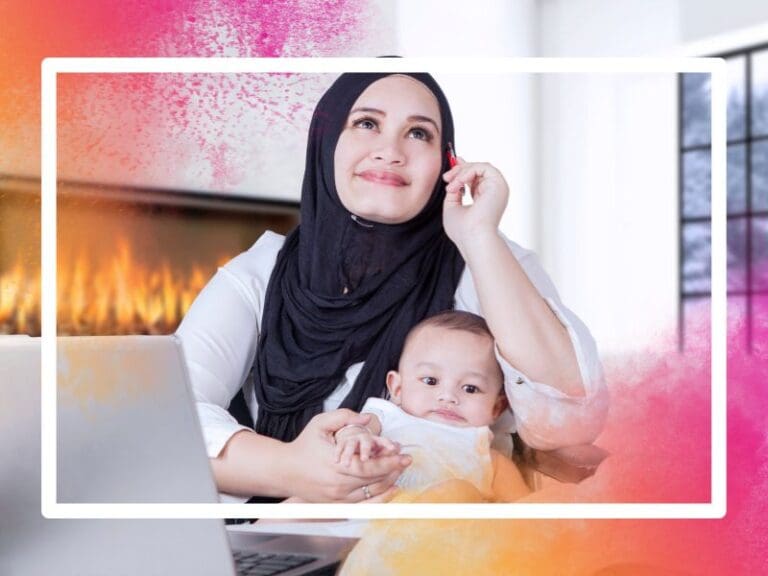Tjitske de Vries is a Community Content Manager at Malwarebytes.
 She studied Physiotherapy in Groningen, Netherlands in the early 2000s. Feeling restless and not at home in her “home country”, Tjitske moved to New Zealand for a year where she travelled for 5 months and worked as a barista the remaining time.
She studied Physiotherapy in Groningen, Netherlands in the early 2000s. Feeling restless and not at home in her “home country”, Tjitske moved to New Zealand for a year where she travelled for 5 months and worked as a barista the remaining time.
Tjitske then moved to Ireland and was introduced to the technology sector. She worked in technical support for years, both in Ireland and in Barcelona. After a brief stint as a (games) translator and a local council elections candidate, she has found her home at Malwarebytes, where she worked as a Technical Support Specialist, a Social Media moderator, an Advocacy Program Manager, and now a writer and host of our “It’s Safe to Ask” biweekly Facebook Live, experiences that resonate with the inspirational journey of leaders featured in the Spotlight Series: Neha Sampat, CEO, Contentstack.
Years ago Tjitske co-founded the Women in Tech community here at Malwarebytes, where they emphasise inclusivity, diversity, normalize mental health discussions, and offer support.
I was in the middle of writing a handover for my maternity leave cover when it happened: a sudden loss of vision, nausea, and a sharp pain under my ribs.
It was 8 weeks before my due date, so I blamed it on a greasy binge and the ongoing heatwave in Germany. But six hours later, I was a mother.
Finding out I was pregnant seven months earlier came right after a promotion—one I’d worked so hard for. Feelings of joy were followed by nervousness, you just got a promotion, I thought, what will they think? Despite having a supportive female manager and colleagues who would undoubtedly celebrate my pregnancy, I couldn’t shake the anxiety about informing them and, even worse, about the burden of maternity leave. The infamous mum guilt began to seep in.
This unexpected turn of events was just one moment in a series of challenges that many working mothers, particularly in male-dominated industries like cybersecurity, face.
Gender equality isn’t enough
Whilst only 20-25% of the workforce in cybersecurity is made up of women, the challenge isn’t merely about getting them through the door. The real test begins once they’re in the room, balancing the demands of ambitious careers with the complexities of motherhood.
The statistics reveal just how steep this challenge is. In cybersecurity, for instance, the number of women drops to a mere 14% after the age of 40—a stark reminder of the systemic barriers that persist.
We still have a long way to go in terms of truly supporting women in advancing their careers, particularly after they become mothers. Therefore, organisations shouldn’t just hire women to tick off a diversity quota—they should focus on creating supportive environments they can thrive in instead.
What needs to change
Companies have the power to create truly equitable workplaces for mothers, and that starts with recognising a few key steps. The first step is ensuring flexibility and remote work options are available where possible, allowing mothers to balance family and professional responsibilities effectively. Next, paid parental leave must become the norm, not an exception. When mothers and fathers can take time off without financial strain, it signals a workplace that values family as much as performance.
Equally important is acknowledging that motherhood doesn’t always follow a straight path. Stillbirths, miscarriages, NICU stays, and IVF treatments are all part of many parents’ journeys. This should be accompanied by robust maternity leave cover, so existing team members are not overburdened during a colleague’s absence. Support for parents could extend further with subsidised childcare or even in-office childcare facilities, particularly in larger organisations that can afford such measures.
Cultural changes are equally important. Open workplace cultures that provide safe spaces for parents to connect, make a significant difference. Many western countries require workplaces to provide dedicated spaces for breastfeeding or pumping—offering mothers privacy and support for their physical needs while at work—but enforcement can vary significantly.
Finally, career development for mothers must be a focus. Mentorship programs, career advice, and access to education subsidies enable mothers to pursue their ambitions while balancing family responsibilities. By making time and resources available for skill development, employers can ensure that motherhood doesn’t become a career roadblock.
Mothers are some of the most resilient people in the workplace. We master time management after juggling morning chaos. We’re resourceful and creative, and we’re patient and composed, even when the twentieth person asks if our baby needs a hat in 90°F.
We hold it together, despite the mental load of being judged for our choices—whether it’s about how we care for our children or how we balance our careers.
We can—and will—deliver, both as mothers and as professionals. But to truly excel, we need more than just equality; we need a shift in mindset.








